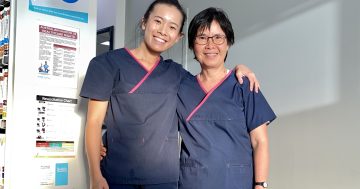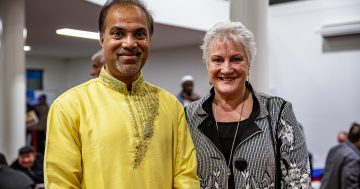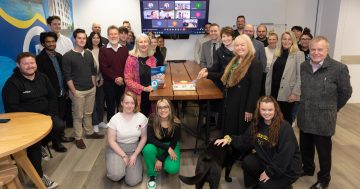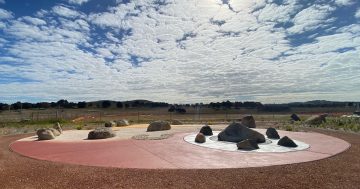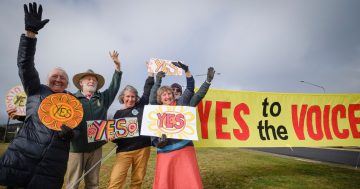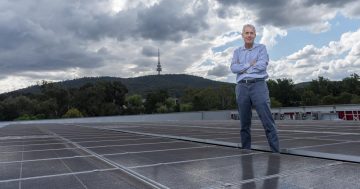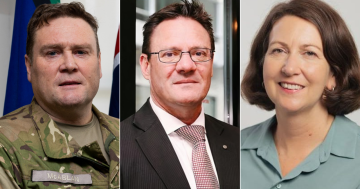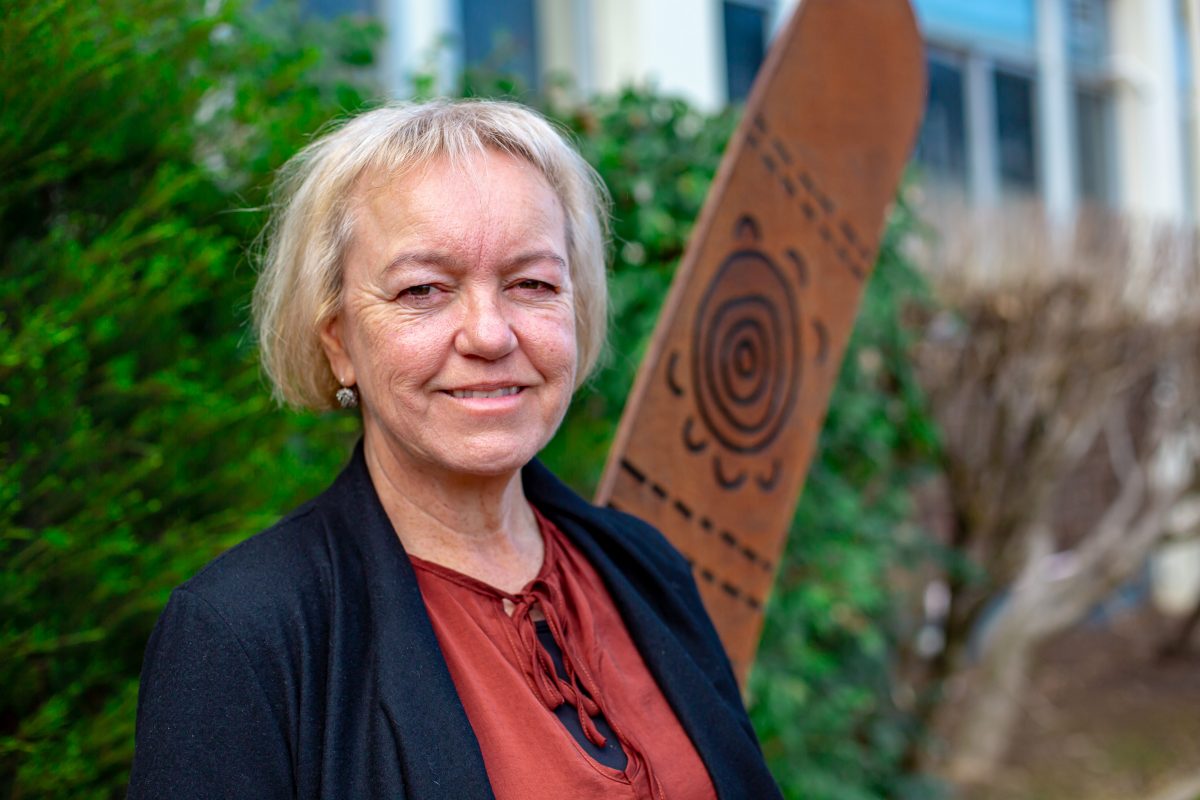
Dr Caroline Hughes said the honour belonged to her Ngunnawal community and the thousands she had worked with over 40 years. Photo: File.
Ngunnawal elder Caroline Hughes has been made a Member of the Order of Australia in today’s King’s Birthday Honours, recognition that raises all Ngunnawal up, she says.
Dr Hughes has been honoured for her significant service to the Indigenous community of Canberra.
She is among dozens of Canberra region high achievers and community stalwarts recognised in the honours list.
An Australian of the Year nominee, she was awarded an Honorary Doctorate from the University of Canberra (UC) last year, after being connected to UC for more than two decades, including as the CIT’s Yurauna Centre director.
In January this year, she left that post to take on a role in the executive division of the Australian Institute of Aboriginal and Torres Strait Islander Studies (AIATSIS). She says she is in her dream job, working with the AIATSIS cultural collection.
She has also been involved in the Ngunnawal language project at AIATSIS.
It’s a long way from her childhood when bullying made her life hell, but the help and mentoring she received have been something she has taken up and tried to pass on to others.
“I never wanted people to feel less than,” she told Region. “That’s where I come from, that when you help one, you help the collective.”
Dr Hughes said she had helped thousands of people achieve what they thought was out of reach for them.
She said education was the salient ingredient for changing and empowering people’s lives.
Helping to restore the Ngunnawal language had been a tremendous journey for Ms Hughes, who grew up with only a spattering of her language, fearing that she and her siblings would be taken away if they spoke Ngunnawal words outside of family.
“Now we’re sharing the Ngunnawal language. It’s powerful,” she said.
“You can’t even imagine the joy that gives you inside to hear your language after being denied for so long.
“It’s about the absolute right of our people to have access to something that was denied for so long.”
Dr Hughes said being nominated was a gift, and the honour belonged to her Ngunnawal community and the thousands she had worked with over 40 years.
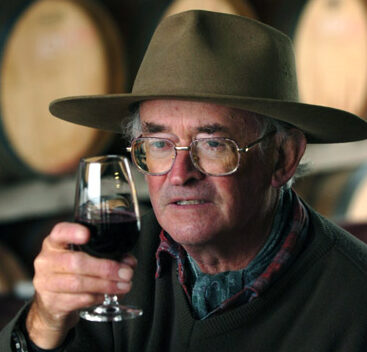
Clonakilla winery founder Dr John Kirk. Photo: Clonakilla.
Canberra district wine pioneer Dr John Kirk was also made a Member for his services to winemaking.
The founder of Clonakilla winery at Murrumbateman, the now-retired Dr Kirk, was at the forefront of developing the region’s wine industry.
He said it was very pleasing to be acknowledged by your country for your contribution.
“It’s just nice to be appreciated, that you’ve done something for the country. It’s nice to get a bit of a pat on the back,” he said.
It was also a pat on the back for the region’s wine industry, which has blossomed over the years to be a really significant part of Australia’s wine scene.
That was not a given when he started out.
“At that time, we just didn’t know if it was a goer,” he said.
“We could always grow grapes, but we had no idea if they would ripen and if they ripened, we didn’t know if it would give us quality.”
Dr Kirk said it was too big a question mark to know if wine would succeed across the region.
“But as we became established and other people became established, our confidence grew, especially when the wine writers started to say very nice things about our wines,” he said.
“We felt, well, we’ve really got something here.”
Dr Kirk will spend today celebrating with family at Clonakilla.
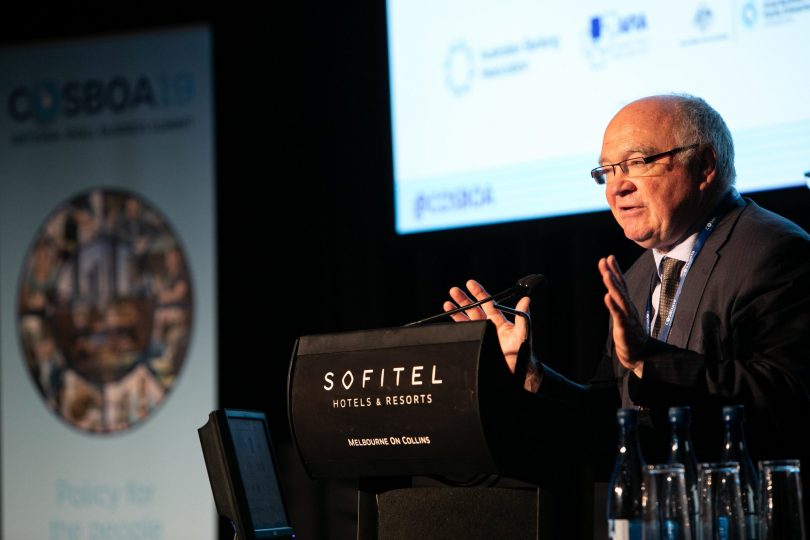
Peter Strong in his role as CEO of the Council of Small Business Australia in 2019. Photo: COSBOA Facebook.
Longtime small business advocate Peter Strong also joined the AM club.
Mr Strong said he was chuffed at the honour and acknowledged everyone who had contributed to it.
He spent more than a decade as CEO of the Council of Small Business Australia, raising the profile of small businesses and working with government.
“There was some really good stuff that we managed to achieve over those years,” he said.
But Mr Strong is most proud of putting a human face to the small businesses he represented so governments and public servants remember they’re dealing with human beings not statistics.
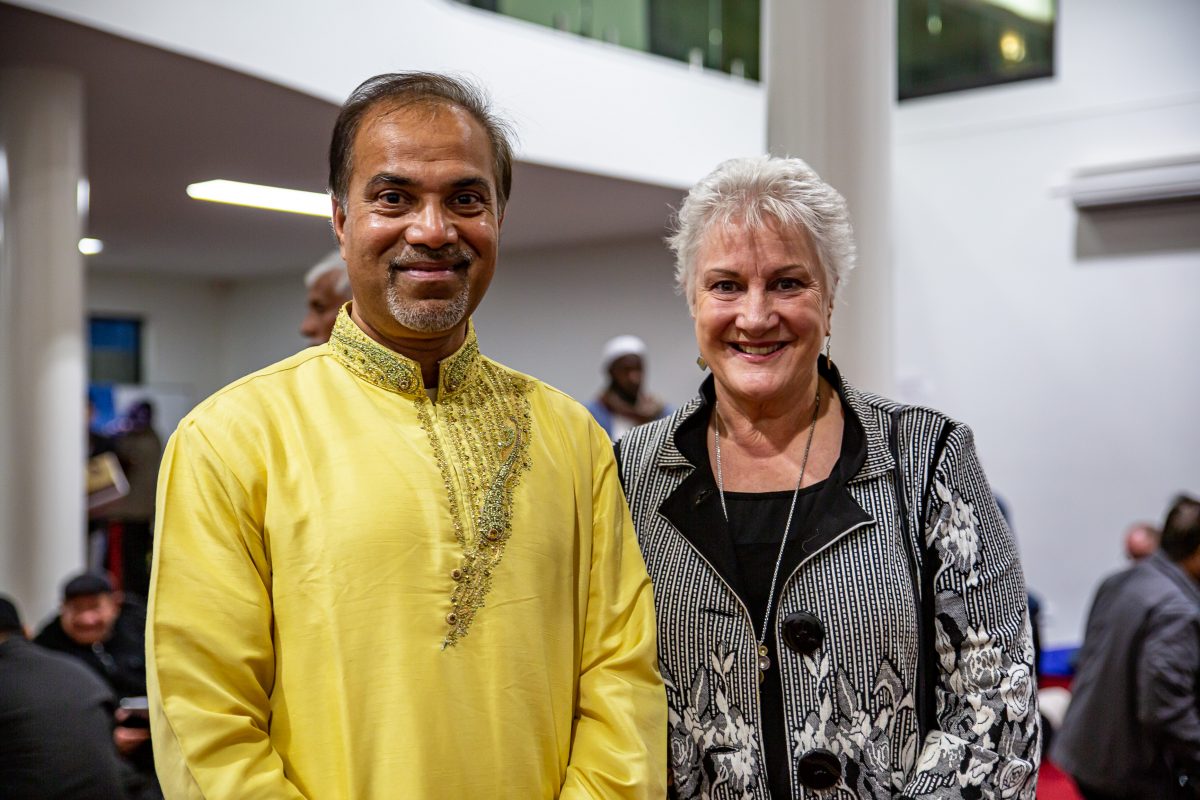
Mainul Haque (left) with the New Zealand High Commissioner Dame Annette King at the Gungahlin Mosque. Photo: Region.
Mainul Haque was awarded a Medal in the Order of Australia (OAM) for his service to the multicultural community of Canberra.
Mr Haque, ACT Multicultural Ambassador and a former president of the Canberra Muslim Community, said he was honoured and humbled to work for the community.
“They are and always will be my inspiration,” he said.
Mr Haque said he was grateful for the opportunity to work with so many friends from Canberra’s community groups and for mobilising over 40 different ethnicities, raising nearly $3 million and delivering Gungahlin Mosque in 2017.
But the recognition also meant there was more to do to live up to people’s expectations, including increasing education and job opportunities and lifting people out of poverty.
Even in an affluent city like Canberra, there were 40,000 people living below the poverty line.
“I hope to continue to serve and make a difference in the lives of the disadvantaged in our communities,” he said.
But Mr Haque said Canberra was a welcoming city for people of different cultures, a melting pot where 200 languages were spoken.
He praised all sides of politics for supporting the multicultural community particularly when the Gungahlin Mosque was being built and at the time of the Christchurch massacre.
“I love Canberra. I’ve lived in many places, and Canberra’s brought the best out of me,” he said.
The ACT region recipients are:
Member (AM)
Professor Emerita Berwyn CLAYTON, for significant service to the vocational education and training sector.
Dr Caroline HUGHES, for significant service to the Indigenous community of Canberra.
Dr David Charles HUGHES, for significant service to sports medicine as an administrator and elite athlete physician.
Dr John KIRK, for significant service to oenology, and to professional associations.
Jill McINTOSH, for significant service to netball, particularly as a coach at the national and international level.
Margery Anne NICOLL, for significant service to the law, and to the legal profession.
Peter James STRONG, for significant service to the small business sector, and to the community.
Hiroe SWEN, for significant service to ceramic art as a teacher and an artist.
Officer (AO)
Dr Marianne HORAK, for distinguished service to entomology, to taxonomic and phylogenetic research, and to philanthropic endeavours.
Rosemary Therese HUXTABLE PSM, for distinguished service to public administration through leadership roles in the areas of health and finance, and to strategic policy reform.
Medal (OAM)
Rowena Alisa ABBEY, for service to local government, and to the community of Yass.
Gillian BAILEY-GRAHAM, for service to the performing arts, particularly through music.
Ebenezer BANFUL, for service to the African community, and to health.
Mrs Catherine Margaret BOHM, for service to the community, particularly through St Paul’s Anglican Church Manuka.
Barry Leonard CAMPTON, for service to veterans and their families.
Robert Peter CLYNES, for service to the law, and to the legal profession.
John Joseph CROTTY, for service to taxation reform.
Dr Sunita Siddhu DHINDSA, for service to the Indian community of the Australian Capital Territory.
Mrs Jaishri Patricia FALCETTA, for service to the community through social welfare organisations.
Dr Fergus William GARDINER, for service to medicine.
Penelope Jane GRIST, for service to community history, and to the arts.
Mainul HAQUE, for service to the multicultural community of Canberra.
Elizabeth Harrison HARDING, for service to youth.
Barrington Frederick JARMAN, for service to Australia-Japan relations.
Lesley Esther JOHNSON, for service to the community of Gunning.
David Bruce KERR, for service to conservation and the environment.
Beverley LEAHY, for service to the community of Canberra.
Geoffrey Lewis MOORE, for service to athletics.
Belinda Jane MOSS, for service to education.
Heidi Joy PROWSE, for service to community health.
Nishi PURI, for service to the Indian community of Canberra.
Muhammed Sadarud Dean SAHU KHAN, for service to the community, and to interfaith relations.
Margaret Larraine SHADFORTH NICHOLLS, for service to women, and to the community.
Arun VENKATESHA, for service to the Indian community of Canberra.












